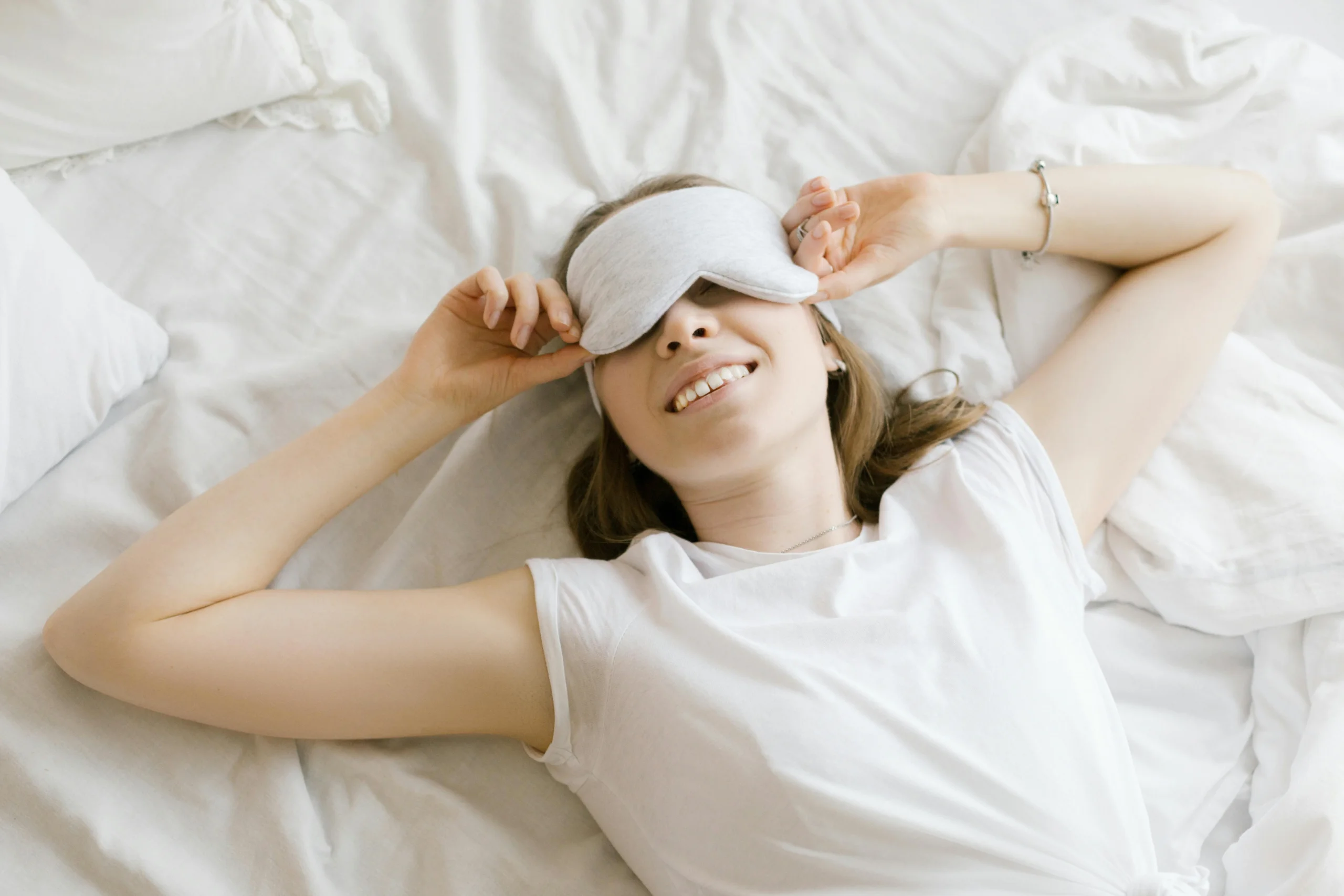
You’re lying in bed at midnight again, scrolling your phone and wondering why you can’t wake up before 9 AM. I can tell you from experience that becoming a morning person isn’t about forcing yourself awake earlier—it’s about rewiring your entire sleep system from the ground up. The secret lies in strategic bedtime manipulation, and I’ve never seen anyone fail when they follow this methodical approach. Here’s exactly how you’ll transform your circadian rhythm in just two weeks.
Understanding Your Natural Circadian Rhythm

Why do some people naturally wake up at 5 AM feeling refreshed while others can’t function before 10 AM? It’s your circadian rhythm, your body’s internal clock that controls when you feel alert and when you crash.
I can tell you from years of observation, your genetics determine whether you’re naturally a lark or an owl. About 25% of people are natural early birds, 25% are night owls, and 50% fall somewhere between. Your circadian rhythm runs on roughly a 24-hour cycle, triggered by light exposure and hormone releases like melatonin and cortisol.
Here’s what matters: you can shift your rhythm, but you’re working against or with your natural tendencies. I’ve never seen someone completely override their genetics, but you can definitely influence your sleep-wake cycle through consistent habits. The beauty of waking up early is that you get quiet moments for yourself before the day demands your attention, creating space to focus on what truly matters – your own well-being and morning routine.
Calculate Your Ideal Bedtime Based on Wake-Up Goals
Most people guess their bedtime and wonder why they’re exhausted the next morning. I can tell you that successful people calculate backwards from their wake-up time, and it transforms everything.
Here’s your formula: take your target wake-up time, subtract 7-9 hours depending on your sleep needs, then subtract another 30 minutes for wind-down time.
If you want to wake up at 5:30 AM and need 8 hours of sleep, you must be asleep by 9:30 PM, which means starting your bedtime routine at 9:00 PM. I’ve never seen anyone consistently wake up early without doing this math first. Your body doesn’t negotiate with wishful thinking.
Calculate your exact bedtime, set non-negotiable alarms for both sleep and wake times, then guard these numbers like your career depends on it. Once you’ve locked in your schedule, maintain the same wake-up time even on weekends to properly set your circadian rhythm for long-term success.
Create a Gradual Sleep Schedule Transition Plan
While your math gives you the perfect bedtime target, jumping from midnight to 9 PM overnight will backfire spectacularly. I can tell you from experience, your body will revolt against such drastic changes.
Instead, shift your bedtime by 15-30 minutes earlier each night. If you’re currently sleeping at midnight and need to reach 9:30 PM, move to 11:45 PM tonight, then 11:30 PM tomorrow. This gradual approach prevents the frustration of lying awake for hours, staring at the ceiling.
I’ve never seen anyone successfully maintain a dramatic sleep schedule change. Your circadian rhythm needs time to adjust, typically 3-7 days per hour shifted. Plan for 1-2 weeks to reach your target bedtime, and you’ll build sustainable habits that stick.
Remember that habit formation typically takes an average of 66 days according to research, so be patient with yourself as you establish this new sleep routine.
Design an Evening Wind-Down Routine

Once you’ve established your gradual bedtime shift, you’ll need a consistent wind-down routine that signals to your brain it’s time to sleep. I can tell you from experience, this routine becomes your secret weapon for commanding better sleep quality and morning energy.
A consistent wind-down routine becomes your secret weapon for commanding better sleep quality and unstoppable morning energy.
Your evening ritual should follow these non-negotiables:
- Dim all lights 90 minutes before bed – bright lighting destroys your natural melatonin production
- Stop all screens 60 minutes prior – the blue light keeps your brain wired and alert
- Practice the same calming activities nightly – reading, gentle stretching, or meditation work perfectly
I’ve never seen anyone fail when they stick to this formula religiously. Your body craves predictability, and this routine trains your nervous system to downshift automatically. Consider incorporating progressive muscle relaxation by tensing and releasing muscle groups from your toes to your face to release physical tension accumulated throughout the day. Consistency here isn’t optional if you want real power over your mornings.
Optimize Your Bedroom Environment for Better Sleep
After you’ve mastered your evening routine, your bedroom environment becomes the next critical factor that’ll make or break your sleep transformation. I can tell you from experience, your room’s temperature, lighting, and noise levels directly impact your ability to fall asleep fast and stay asleep.
Keep your bedroom between 65-68 degrees Fahrenheit. Your body temperature naturally drops when you’re ready to sleep, and a cool room accelerates this process. Install blackout curtains or use an eye mask to block every bit of light. Even small LED lights from electronics can disrupt your circadian rhythm.
Invest in a white noise machine or earplugs to eliminate disruptive sounds. I’ve never seen anyone regret creating a sleep sanctuary that feels like a cave. Consider adding air-purifying plants like snake plants or peace lilies to your bedroom to improve air quality and support better rest cycles.
Eliminate Common Sleep Disruptors From Your Night
Even with a perfect bedroom setup, hidden disruptors can still sabotage your sleep quality and leave you struggling to wake up early. I can tell you from experience, these sneaky culprits will destroy your morning routine faster than you think.
Here’s what you need to eliminate tonight:
- Late caffeine consumption – Stop drinking coffee, tea, or energy drinks after 2 PM. Caffeine stays in your system for 6-8 hours.
- Screen time before bed – Put away your phone, laptop, and TV at least one hour before sleep. Blue light tricks your brain into staying alert.
- Heavy meals and alcohol – Finish eating three hours before bed, skip the nightcap entirely.
I’ve never seen anyone successfully become a morning person while ignoring these fundamentals. Creating a calming pre-bedtime routine that incorporates stress-reducing activities and light stretching will further support your transition to early rising.
Morning Light Exposure to Reinforce Your New Schedule

While you’re cutting out sleep disruptors, you’ll need to actively signal your body when it’s time to be awake, and nothing works better than bright morning light. I can tell you from experience, this single habit transforms your circadian rhythm faster than any supplement or trick.
Get outside within thirty minutes of waking, even if it’s cloudy. Your eyes need natural light hitting them directly, not through windows or sunglasses. I’ve never seen anyone fail at becoming a morning person when they consistently expose themselves to bright light first thing.
If you can’t get outside, use a 10,000 lux light therapy box for fifteen minutes while drinking coffee or eating breakfast. This reinforces your new sleep schedule, making early bedtimes feel natural within weeks. Morning light exposure also regulates your body’s cortisol production, which boosts mental clarity and focus throughout the entire day.
Handle Sleep Schedule Setbacks and Slip-Ups
What happens when you mess up your new sleep schedule? You get back on track immediately, that’s what. I can tell you from experience that everyone slips up, but winners don’t spiral into defeat.
- Reset the next night – Don’t wait until Monday or next week. Go to bed at your target time the following evening, even if you’re not tired.
- Double down on morning light – Get outside within 15 minutes of waking up. This reinforces your circadian rhythm faster than anything else I’ve tried.
- Avoid afternoon naps – You’ll be tempted, but resist. Power through the fatigue to rebuild your sleep pressure.
One bad night doesn’t erase weeks of progress. I’ve never seen consistent people fail at this transformation. Remember that fighting against your natural rhythm often backfires, so be patient with yourself as you adjust to your new schedule.
Track Your Progress and Energy Levels
Tracking your progress keeps you honest about whether this morning person transformation is actually working. I can tell you that without data, you’re just guessing about your success, and that’s a recipe for failure.
Start a simple sleep journal. Record your bedtime, wake-up time, and how you felt throughout the day. Rate your energy levels from 1-10 at three key moments: morning, afternoon, and evening. I’ve never seen anyone maintain lasting change without tracking these basics.
Use your phone’s sleep tracking features or a basic notebook. After two weeks, you’ll spot patterns that reveal what’s working and what isn’t. Maybe you’re crushing mornings after 7.5 hours of sleep but dragging with only 6.5 hours. That’s power information you can act on immediately.
Consider celebrating small successes along the way, as recognizing these wins helps maintain momentum when building any new habit.
Maintain Your New Early Bird Lifestyle Long-Term
Once you’ve successfully transformed into a morning person, the real challenge begins: staying that way for months and years to come. I can tell you from experience, maintaining this lifestyle requires strategic planning and unwavering commitment to your new identity.
Build protective boundaries around your sleep schedule, even during weekends and social events
Create accountability systems with family members or morning workout partners who’ll notice when you slip
Develop backup plans for disruptions like travel, illness, or major life changes
Start with just two or three critical boundaries around your sleep routine rather than trying to enforce every aspect of your ideal schedule from day one.
I’ve never seen anyone sustain early rising without treating it as non-negotiable. You can’t let “just this once” become your downfall. When challenges arise, recall why you started this journey. Your morning routine isn’t just a habit—it’s your competitive advantage.
Conclusion
You’ve got all the tools to transform into a morning person, but I can tell you from experience, consistency beats perfection every time. Don’t expect overnight changes – your body needs time to adapt. Stick with your new bedtime even when you’re tempted to stay up late. I’ve seen too many people give up after one setback. Trust the process, track your progress, and you’ll wake up energized instead of exhausted.



Leave a Reply